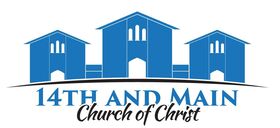 The moment your children come into the world; you love them. They have done nothing to earn your love, but you love them anyway because they are yours. You continue to love them, no matter what they do. This is unconditional love and parents have it. This is the best human example of God's love for us. It is not based on performance or merit. It is based on the fact that we are His. It is crucial for any father to express his love for his children in both what he says and what he does. Our heavenly Father expressed His love to us again and again (1 John 4:19). What excites the emotional energy of God? What stirs His heart? What makes Him sad? To know the answers to these questions is to have a better understanding of how much God loves you (Romans 5:8). Answers to these questions give us insight into the inescapable love of God. Throughout Scripture God affirms His love for us. We know He loves us, because He says so. God’s INESCAPABLE Love – is a love that hurts with us, a love that dreams great dreams for us, a love that cares enough to discipline us so that we might return to Him (Hebrews 12:10). God tells us He loves us, and He shows His love for us. His ultimate act of love was sending His son Jesus Christ into the world to die for our sins. Clark Tatum
 I am often asked about what do I think about certain Bible translations. I usually respond by saying “My main interest for people is that they read a translation, any translation.” It is valuable to know there is a huge difference between a translation of the Bible and a paraphrased version of the Bible. A translation is the idea of substituting the meaning of the original word from one language to another. A paraphrased Bible is when the translator reads from the original manuscripts then in his own words interprets the meaning. A Bible translation, any translation, is far better than a paraphrased translation. It can be helpful to compare multiple translations in your study of the Bible. Today there are many good English translations of the Bible. Translating scriptures from the ancient manuscripts to English is difficult even for the sincere and scholarly translators. The discoveries of more recent manuscripts, like the Dead Sea Scrolls in 1948, continue to assist the translators. While English versions differ in translating specific statements, all the translations present the basic duties toward God and how we can be saved from sin. I like the statement Jack P. Lewis made some years ago, “The religious problems of the world are not caused by people reading different translations; the most serious problem is that many read no translation.” I recommend Neil Lightfoot’s Third Edition of his book called “How We Got the Bible.” This can assist anyone wanting to have a better understanding of the translation process. Clark Tatum
 Many people in our society treat religion as a “good hobby” for Sundays. Our fast food, fast pace world has influenced us even in the church to try and make our religion as compact and as easy as possible. In a real sense, some people go to the assemblies of the church so that someone else can do their thinking for them and tell them all they need to know about the Bible. That may appeal to some, but no one can grow up in the faith properly with this attitude and approach (Hebrews 5:14). Spiritual maturity takes daily effort. It is only when you approach Bible study in a sincere, organized, and consistent manner do you begin to truly understand that God’s will is pleasing and perfect (Romans 12:2). Bible study as God intended it to be, is rich, exciting and should be a life-changing experience. Here are a few questions I have found helpful to ask myself in my daily Bible study. Is there an example to follow? Is there a sin for me to avoid? Is there a command for me to obey? Is there a promise for me to claim? These questions are helpful in the application of the Scripture. The lack of application is a reflection of one’s lack of commitment to the Lord. Clark Tatum
 Let us take seriously the call to let light shine in our hearts (Matthew 5:14) by building on the proper foundation. We can be a positive influence for godliness to those around us at work, school, and at home. If you do not plant something good, nothing good will ever grow. Remember the story of the big bad wolf? The wolf threatened to huff and puff and blow down the houses of the three little pigs. He succeeded in blowing down two of the houses, but he failed on the third. Why? Because brother number three had the sense to build his house out of bricks and mortar. Jesus shared a principle that is important for us today. Matthew 7:24-25 – Therefore everyone who hears these words of mine and puts them into practice is like a wise man who built his house on the rock. The rain came down, the streams rose, and the winds blew and beat against that house; yet it did not fall, because it had its foundation on the rock. Today families are bombarded on all sides by the big bad wolf. Satan is the one who huffs and puffs and seeks to blow down our homes and tear down our relationships. Therefore, build your life with the mortar of support and encouragement of the Lord. Clark Tatum
 There is an old story of a boilermaker repairman who was hired to fix a large steamship boiler. After listening to the engineer’s description of the problem and asking a few questions, he enthusiastically went to the boiler room and looked at the maze of pipes. He listened to the thump of the boiler and the hissing sound of the steam for a few minutes. Then he reached into his overalls and took out a small hammer and tapped a bright red valve, once. Immediately the entire system began working perfectly and the boilermaker went home. When the steamship owner received a bill for $1,000.00, he complained that the serviceman had only been in the engine room for 15 minutes. He requested an itemized bill for the repair. The bill read: For tapping with hammer - $1.00 and for knowing where to tap - $999.00. Never underestimate the value of acquiring and applying proper knowledge. The prophet Hosea speaking for God said, “My people are destroyed for a lack of knowledge” (Hosea 4:6). Of course, in the context of Hosea Chapter Four the knowledge of God was available to the people, only they did not apply it to their lives. Nonetheless, knowledge of what God’s will is for us is important, but even with knowledge we need the enthusiasm to obey God’s Word. Clark Tatum
|
Archives
July 2024
|

 RSS Feed
RSS Feed